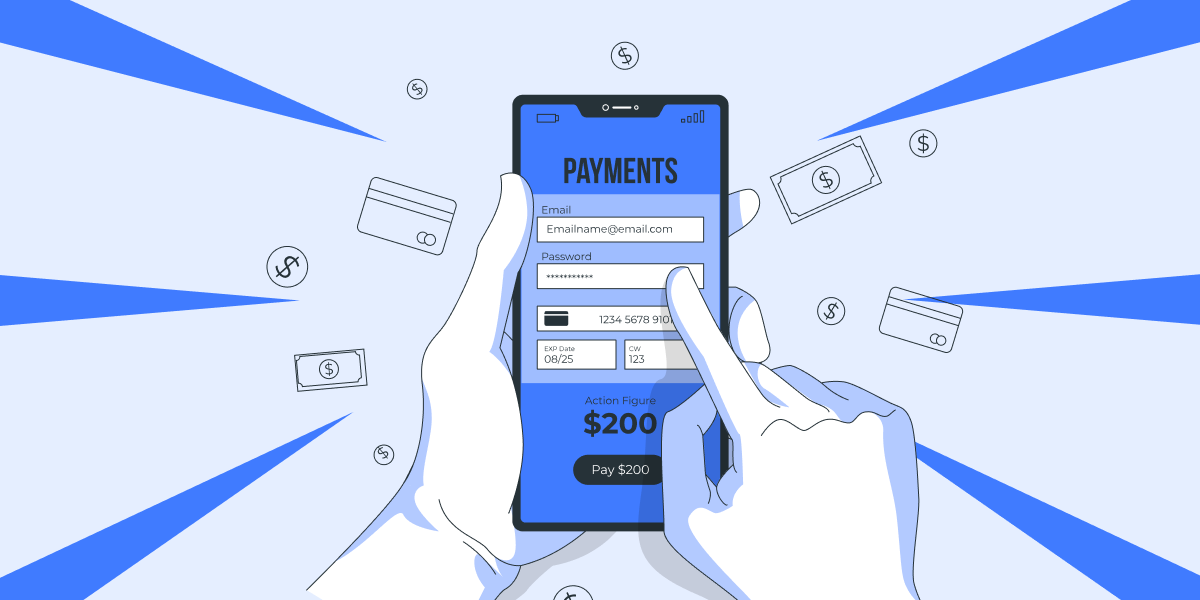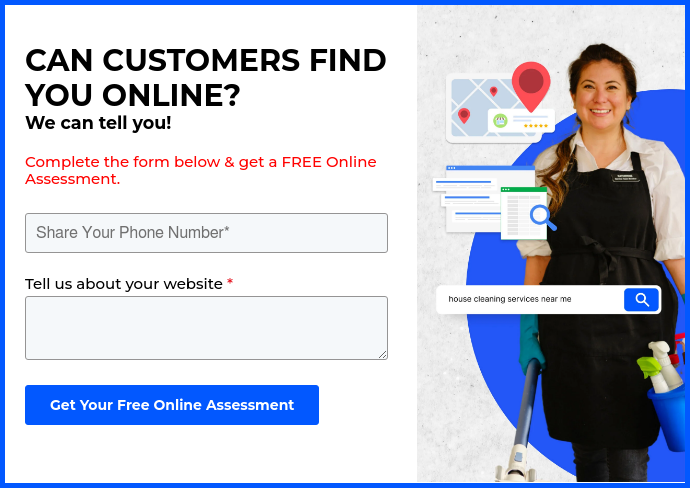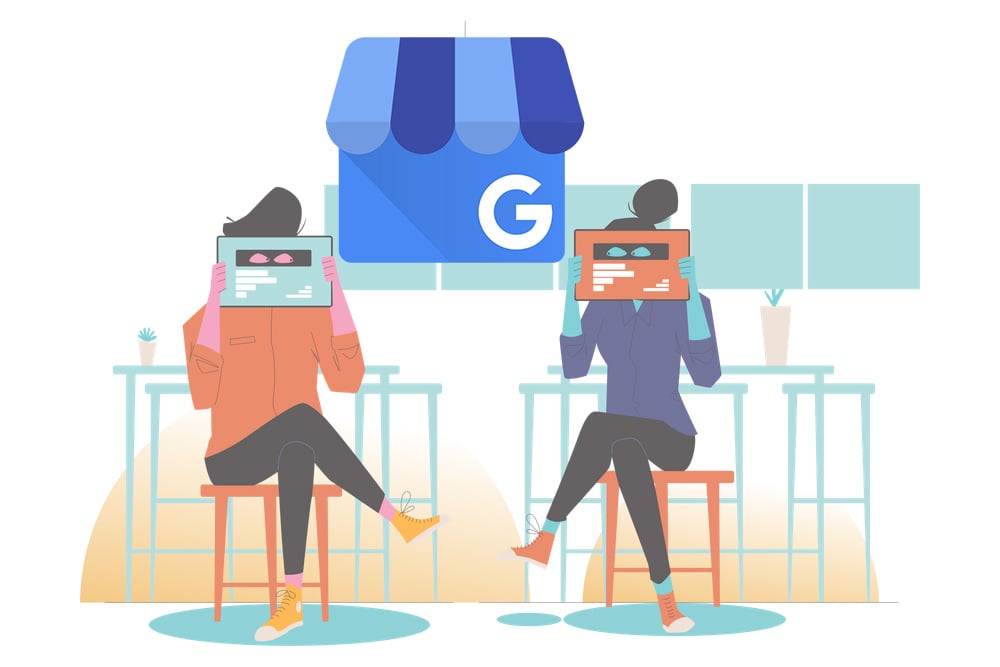Why Peer-to-Peer Cash Apps are Easy But Bad for Small Businesses
Curious about trying peer-to-peer cash apps for your small business? Learn more about its downsides for business transactions.

Let’s face it. It’s not easy to get a small business off the ground and keep it running—which is why many business owners look at peer-to-peer payment services as a money-saving alternative.
But here’s the hard truth: It’s not. In fact, it can be downright dangerous.
 Source: eMarketer
Source: eMarketer
So why are peer-to-peer (P2P) payments appealing? Simple. Processing fees can feel costly. In months where you’re operating lean, it can feel like an unnecessary or intrusive expense. But it’s helpful to keep in mind that there’s a reason for those expenses and that the peer-to-peer option often comes at a greater cost.
Jump to:
-
Business Owners Like the Simplicity of Peer-to-Peer Payment
-
The Pitfalls of Peer-to-Peer Payments for Business
-
How Peer-to-Peer Payments Differ from Professional Payment Solutions
-
Professional Payment Solutions Provide a More Centralized Experience
-
What to Look For in a Professional Payment Service
-
How Professional Payment Solutions Support Business Growth
-
Are Peer-to-Peer Payments Right for Your Business? Probably Not.

Business Owners Like the Simplicity of Peer-to-Peer Payment Apps
Venmo, Cash App, PayPal, Kik, and other P2P payment apps are easy, especially for mobile businesses like home services, home care providers, pop-up shops, art vendors, lessons, and more. And according to a 2022 LendingTree survey, 84% of consumers have used P2P services. This means customers who invest in products or services likely have a P2P payment app right on their phones.
It seems like the perfect solution. Little or no fees, no cash, and easily accessible apps on your device. It’s also painless to transfer the money right to your bank account—so why wouldn’t you use it?
The Pitfalls of Peer-to-Peer Payments for Business
The name “peer-to-peer payments” perfectly describes what the apps were designed for: To transfer money between friends or acquaintances. It’s ideal for sending money to your coworker to help pay for lunch, or to your sibling for your portion of a parent’s gift. Basically, P2P was not created with business in mind.
Because peer-to-peer payments are not business-focused, they can put you at risk.
Peer-to-Peer Transactions May Not be Secure or Private
Banks, credit card companies, and other financial institutions are making security and privacy a core part of their services. And in a world where scams, fraud, and cyber attacks run rampant, it’s a crucial part of keeping consumers and businesses safe.
According to a 2021 report by VMware, 63% of financial institutions experienced an increase in destructive cyber attacks, an increase of 17% from last year.
In response, these banks and other companies within the financial sector are increasing the amount they spend on cyber and data security. Customers have likely seen more multifactor authentications, which is just one way financial institutions fight the problem.
With P2P apps, users must use due diligence to optimize security. This may mean updating the app consistently, choosing multifactor authentication if it’s available, and personally evaluating how easy it is for a user to get an account.
For example, do they require you to send any identifying information? If not, security standards may not match that of a bank or credit union, or give you the protections credit card companies do.
Privacy is another issue. It’s essential to know what P2P payment apps put in place to protect your information, and how to use privacy settings.
As an example, Venmo states on its website that you must set transactions to private, otherwise they may be public to anyone on the internet. It’s also helpful to note that you can look up other “users,” which isn’t something you can do in the banking world.
As a business, customer security and privacy should be something you prioritize, which makes it more necessary to understand the potential issues with peer-to-peer transactions.
P2P Payment Users are at Risk for Fraud, Scams, and Human Error
 Source: LendingTree
Source: LendingTree
One of the first things to note as a P2P platform user is that often, once the money is sent, it’s gone. Unlike checks or credit cards, there’s very little put in place for fraud protection. And scammers know this as well. Consider what could happen if your phone was hacked, or someone who looked like they may be a customer “accidentally” sent you too much money and wanted you to send some back.
The LendingTree peer-to-peer payment services survey found that 15% of people using P2P payment apps have been victims of scams, and for those who used them several times a week, the percentage increased to 22%.
Human error can also cost you. Whether it's a typo or money sent to the wrong person, it can become a time-consuming issue that may result in financial loss.
In the same survey mentioned above, 23% of respondents sent money via a P2P app to the wrong person, and if they used the apps multiple times a week, the percentage jumped to 42%.
Many Peer-to-Peer Apps Lack the Ability to Handle Disputes
From time to time, businesses face disputes. For small businesses, this can be a huge hassle, especially without a fraud department to advocate on your behalf. If there is a disagreement between a consumer and a vendor, there is no arbitration system in place, leaving you to deal directly with any accusation that comes up.
Peer-to-Peer Transactions May Have Longer Processing Times, Holds, and Declined Transactions
Businesses use P2P for speed, convenience, and to avoid fees, but you’ll likely still deal with those things and more. Here’s why:
- Processing time: A bank typically takes a couple of days to process a transaction. It can vary with different P2P platforms, but transferring to your bank account still takes 1-3 days on average. If you want the money available instantly from a P2P transaction, you’re likely to pay a fee. If done regularly, those fees start to add up
- Holds: Large peer-to-peer transactions may be subject to long hold times and scrutiny, especially if you’re not using the business version of the app. Venmo says a hold may be placed for up to 21 days, while Cash App says holds for certain transactions may be up to 10 days. PayPal can hold your funds for up to 21 days for a variety of reasons, and depending on the situation, even over a month. A hold can happen with inconsistent business patterns or if your account has been inactive for a while. You may even get a hold placed if there are any complaints about your business, active requests for refunds, you are a first-time seller, or there is an active dispute.
 Source: PayPal and Reddit
Source: PayPal and Reddit
With new IRS rules, you may incur holds on business transactions until you provide tax information—and users should be wary about the potential IRS crackdown on underreported business transactions through P2P payments.
- Declined transactions: Transactions may be declined for several reasons, whether the amount exceeds a limit, there is suspicion of fraudulent activity, or the payment triggered a security flag. If you’ve already done the service and a customer’s payment has declined, there are very few ways to achieve a resolution of this issue through a P2P provider.
 Source: 9gag
Source: 9gag
P2P Payment Apps May Not Allow Business Transactions
Before you accept any business transaction through a P2P payment vendor, make sure you know the rules and regulations. If you use the platform in a way that’s not listed as acceptable, you open yourself to legal action and other consequences.
Venmo explicitly states that you cannot use them for business transactions unless it is authorized by Venmo, and warns against transactions that involve purchases or sales between people who don’t know each other.
 Source: Venmo
Source: Venmo
Make sure you read the fine print before using any peer-to-peer payment platform for your business.
P2P Balances Are Not FDIC Insured
If you’re a business owner using peer-to-peer payment services for business transactions, you may also be inclined to keep a balance within your P2P account. One important safety feature many businesses and individuals have through banks is being FDIC-insured.
 Source: MyMCM
Source: MyMCM
FDIC deposit insurance covers many financial institutions and is there in case of an institutional failure. This means your money is covered up to a certain amount to prevent catastrophic loss in a rare financial crisis. P2P apps do not have this coverage, which means it leaves your money more open to risk.
Peer-to-Peer Transactions Are Not Automatically Integrated Into Your Accounting System
Time is a precious commodity for small businesses. If you have to take the time to tie payments to invoices in your accounting system, it ends up costing you. It’s also essential to note that any payment you receive via a P2P platform must be reported to the IRS as taxable income.
It’s important for you to decide if what looks like speed and convenience actually benefit your business. To do that, you have to look at how P2P payment transactions stack up to professional payment solutions—and if it fits within your overall accounting system.
How Peer-to-Peer Payments Differ from Professional Payment Solutions
A dedicated payment solution offers businesses more options. With peer-to-peer payments, you are likely to need several applications since each customer typically favors one. So while they may use Cash App, they may not have Venmo. Or they use Kik over Google Pay. P2P platforms also tend to lack readily available business support.
An ideal professional payment solution will:
- Integrate with your invoicing system
- Offer customer support
- Let you easily accept debit and credit card payments, ACH, or digital wallets, whether contactless or in-person
- Streamlines your cash flow (i.e., you have consistent processing, transfer, and hold times for payments)
Professional Payment Solutions Provide a More Centralized Experience
In today’s fast-paced, information-filled world, business owners do not benefit from having to log in to multiple apps or dashboards daily. The more they can centralize the process, the better.
Using a professional payment solution gives you the ability to draw your business data into a more unified source. If your payment processor can integrate with your accounting software, invoicing system, customer communications tools, or simply has all those features, it means you’re able to spend your time in one place. This in turn gives you more time to focus on other tasks that help you grow your business.
What to Look For in a Professional Payment Service
The key to any successful business platform partnership is finding providers that make running your business easier. When looking for the right professional payment solution, look for:
- Usability/intuitive interface - The platform makes it easy to perform tasks and find the information you need
- Access to support - If you run into challenges, customer service and technical support are readily available
- Security - Current security and privacy standards are in place, and the provider makes secure transactions a priority
- Reliability - The platform works when you and your customers need it to
- Helpful integrations - You can integrate with other business tools to create a more streamlined experience
- Simple and straightforward contract and terms - You don’t end up locked into a contract and the terms are understandable and valid
- A pricing plan that fits your business size - Platforms that are scalable to business needs are ideal, so they can grow with you
- Reasonable fees - Fees are unavoidable, but you can find reasonable fees that don’t unnecessarily cut into your profitability
How Professional Payment Solutions Support Business Growth
A professional payment solution is likely to have far more capabilities than a peer-to-peer payment app. The features they provide allow you to:
- More quickly identify issues, like if you have outstanding invoices
- Centralize your cash flow
- Rely on receiving payment within a consistent time period
- Have better payment security
- Provide payment convenience to customers
- Lower the risk of theft
Another thing to think about is looking professional. Peer-to-peer payments can’t give your customers a branded and business-like transaction. Even more, it may result in a negative payment experience. Imagine if a payment is scrutinized or declined, and how uncomfortable that is for both the business and the customer.
Professional payments services can help amplify your reputation, and let you come across as responsive, efficient, and professional.
Are Peer-to-Peer Payments Right for Your Business? Probably Not.
Many small businesses have gotten caught up in the convenience of P2P transactions. Is it really as good as it seems?
The industry is rapidly growing but that doesn’t mean it’s an optimal solution for businesses. And it certainly doesn’t ensure that it will save you time and money in the long run. In fact, the best move you might make for your business is to invest in a professional payment solution. It’s security, convenience, and professionalism that you and your customers will appreciate.
%20(1)%20(1).png?width=340&name=Group%2012%20(2)%20(1)%20(1).png)



